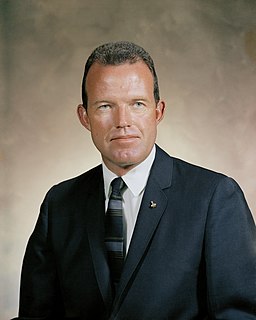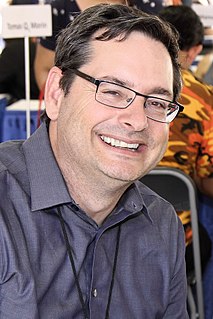A Quote by Guy Debord
Everyone accepts that there are inevitably little areas of secrecy reserved for specialists; as regards things in general, many believe they are in on the secret.
Related Quotes
The whole question of pornography seems to me a question of secrecy. Without secrecy there would be no pornography. But secrecy and modesty are two utterly different things. Secrecy has always an element of fear in it, amounting very often to hate. Modesty is gentle and reserved. Today, modesty is thrown to the winds, even in the presence of the grey guardians. But secrecy is hugged, being a vice in itself. And the attitude of the grey ones is: Dear young ladies, you may abandon all modesty, so long as you hug your dirty little secret.
It has unfortunately now become a habit for so many generations, that it has almost passed into an instinct throughout the Jewish body, to rely upon the weapon of secrecy. Secret societies, a language kept as far as possible secret, the use of false names in order to hide secret movements, secret relations between various parts of the Jewish body: all these and other forms of secrecy have become the national method.
Most of us live in a condition of secrecy: secret desires, secret appetites, secret hatreds and relationship with the institutions which is extremely intense and uncomfortable. These are, to me, a part of the ordinary human condition. So I don't think I'm writing about abnormal things. ... Artists, in my experience, have very little center. They fake. They are not the real thing. They are spies. I am no exception.
The point we are making is that the general global messages have been communicated, about the politics of South Africa, about the economy in general, all of these general questions. The rest of the world understands these things and are saying, let's now come to the specific things so that even we, as big corporate chiefs from around the world, can assist in these areas, which you have decided are your priority areas.
For many years I have lived with a secret, in a secrecy imposed on all specialists in astronautics. I can now reveal that every day, in the USA, our radar instruments capture objects of form and composition unknown to us. And there are thousands of witness reports and a quantity of documents to prove this, but nobody wants to make them public. Why? Because authority is afraid that people may think of God knows what kind of horrible invaders. So the password still is: We have to avoid panic by all means
The quality of health care in Germany is not as good as people sometimes believe it to be. We have problems with chronic diseases. The German system allows too many hospitals and specialists to treat chronic diseases. We do not have enough volume in many institutions to deliver good quality, and we do have fairly strict separations ... between primary physicians, office specialists and hospital specialists. But I think the quality problems can be solved in the next couple of years, and we have made major progress in diabetes, coronary artery disease and pulmonary disease care.
The very word "secrecy" is repugnant in a free and open society; and we are as a people inherently and historically opposed to secret societies, to secret oaths and to secret proceedings. We decided long ago that the dangers of excessive and unwarranted concealment of pertinent facts far outweighed the dangers which are cited to justify it. Even today, there is little value in opposing the threat of a closed society by imitating its arbitrary restrictions. Even today, there is little value in insuring the survival of our nation if our traditions do not survive with it.
... the United States, for generations, has sustained two parallel but opposed states of mind about military atrocities and human rights: one of U.S. benevolence, generally held by the public, and the other of ends-justify-the-means brutality sponsored by counterinsurgency specialists. Normally the specialists carry out their actions in remote locations with little notice in the national press. That allows the public to sustain its faith in a just America, while hard-nosed security and economic interests are still protected in secret.
Fantasy involves that which general opinion regards as impossible; science fiction involves that which general opinion regards as possible under the right circumstances. This is in essence a judgment call, since what is possible and what is not cannot be objectively known but is, rather, a subjective belief on the part of the reader.
Everyone agrees that a secret should be kept intact, but everyone does not agree as to the nature and importance of secrecy. Too often we consult ourselves as to what we should say, what we should leave unsaid. There are few permanent secrets, and the scruple against revealing them will not last forever.



































